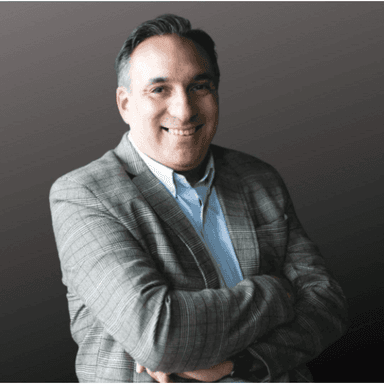A recurring theme comes to my mind day after day, company after company. Customers, suppliers, friends, colleagues, I believe that the same thing happens to all of us once or several times in our professional life. To that end, I will tell you two stories.
Ana woke up before dawn in Buenos Aires. Her screen, still flickering with a client's mail, revealed an urgent message, "We can't find documentation for this assignment, can you move forward anyway?" That morning, like so many others, Ana and her team of five engineers spread between Cordoba, Medellin and Mexico City, faced the same dilemma: talent aplenty, processes nonexistent.
Ana's story is not unique. A year ago, when they set up their small digital solutions agency, they dreamed of the agility of neobanks and the innovation of fintechs. However, they soon discovered that the lack of a methodological framework - even if they had AI and blockchain experts - left each project at the mercy of individual memory. Who remembers the exact steps to set up the environment? Where was the approved version of the flowchart?
As the months passed, daily meetings degenerated into a succession of "how did I do that?" and "did anyone save that email?" Quality reports came back with hasty corrections, and the client, while trusting the group's technical expertise, began to doubt the consistency of delivery. Ana realized then that the real enemy was not technological complexity, but the vacuum of processes and documentation.
In contrast, a few streets over, another growing SME was betting on a living dashboard in an internal Wiki, where every decision was recorded. It was not a dusty manual, but a field diary: stories of mistakes, tricks discovered, templates that evolved with each sprint. There, a new member could venture without fear: he knew that behind each guide there was the voice of those who had already gone through those steps.
But implementing a methodological framework is not enough if it is not accompanied by culture. What good is a checklist if no one understands the "why" of their task? In the same neighborhood, a rival team had introduced team rituals: short virtual meetings where they shared not only technical learning, but also daily anecdotes. A few mates online at noon, a spontaneous acknowledgement when someone solved an impossible bug. And suddenly, people began to feel part of something bigger.
Ana wondered: how to align a remote collaborator in Toronto with the purpose of a company that was born in a garage in Buenos Aires? How to generate a sense of belonging when interaction is limited to screenshots? The answer, she intuited, demanded going beyond compensation: a transparent career plan, real learning scenarios and a shared history that transcends tasks.
Today, that client Ana wrote to in the morning receives not just deliverables, but a story: "Here's the prototype, powered by our internal framework; tomorrow I'll show you how we use QA feedback to iterate faster." But more importantly: the team is no longer looking in its memory, but in a collective record. Each delivery is another chapter in a growing and refining narrative, where each member is a protagonist.
Another visit to a colleague, Carolina, made me relive another story of culture and methodologies. She works in a digital agency based in the United States, but its founder lives and operates from Colombia. To break down cultural barriers and build that missing "we", the CEO proposed something unexpected: to gather the entire Latin American team in the Eje Cafetero for a week of work and shared experiences. The CFO wanted to cancel any possibility of spending any money on this idea, but...
Under the sun of Manizales and between the aroma of freshly brewed cups, the group stopped being a list of names in Slack; each meeting started with family stories, traditions of the people and harvest anecdotes. They visited coffee farms, learned the ritual of "tinto" and could feel how Colombian hospitality is born from the small details: a smile when receiving the cup, the care when serving, the patience to explain the process.
This immersion was not just a simple getaway. On their return, the design team turned that experience into a new visual language: palettes inspired by the intense greens of the coffee plantations, iconography based on the beans and patterns that evoked the warmth of the guadua pallets on the farms. They created a design system that guided the presentation of prototypes to clients: demos where the interface breathed the coffee spirit and communicated, without words, a value of closeness and authenticity.
Carolina's lesson was convincing: sometimes, the best way to align culture and processes is to live a purpose together. When each member understood where that coffee they all drank at the start of the morning came from, they also understood why every line of code, every color choice or every interaction in the app should be charged with the same intention of hospitality.
How could you design experiential experiences that reinforce a sense of belonging and translate everyday values-such as café hospitality-into your team's day-to-day life?
What dynamic documentation format (videos, field stories, collaborative wikis) would ensure that each new member always finds the "single source of truth"?
How would you adapt agile or quality frameworks (Lean, Scrum, Design Thinking, ITIL) so that they are not an end in themselves, but a living scaffolding that drives your productivity and gives coherence to each deliverable?
The lesson is clear: agility without methodological anchoring leads to chaos, and technology without culture becomes a set of forgotten tools.
Are you ready to transform your SME from disconnected soloists into a collective that shares a purpose, clear processes and a common story?


Comments